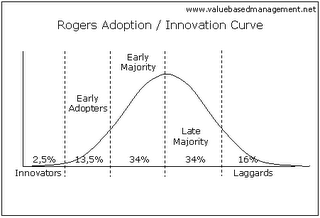I've found a new blog to chew on recently - and I apologize that I can't remember who gave me the lead. Full Circle Online Interaction Blog, "a place to capture and share ideas and links about online interaction, community, distance learning and distributed COPS (Communities of Practice), is a blog by Nancy White who seems to be thinking about the same things I am right now. Her post on Second Wave Adoption has prompted some interesting comments. One in particular has helped me to understand why some educators might be reluctant to adopt blogging as a part of their practice. Michele Martin wrote:
Many organizations still exist within a command and control, closed communication loop. Their institutional practices and relationships to stakeholders are built on this model. But Web 2.0 breaks that wide open, expecting a focus on process, on transparency, collaboration and openness that is simply not a part of the daily culture of many, many organizations.
Well - doesn't that describe traditional education in a nutshell? Don't we always talk about wanting to break down the classroom doors, having teachers become more reflective practioners, utilizing the wisdom of practice that resides within their schoolhouse? Why not use the Web 2.0 tools to start building that professional community? As Kim posted in G-Town:
It’s professional reading, reflecting, and responding. It’s thinking about my audience and what I want to say that potentially can influence thinking or serve a purpose to another educator, student, or parent. It’s about learning. My time spent “blogging”, and by “blogging” I mean reading on-line sources including blogs, writing, and reading comments left on my posts, is all about my own learning. It’s free, it’s accessible 24/7, and it’s what I choose.
Here is the Rogers Innovation Adoption curve that many utilize to determine how they will enact change in their organization:

Isn't it funny that this time our students are the early adopters?
No comments:
Post a Comment